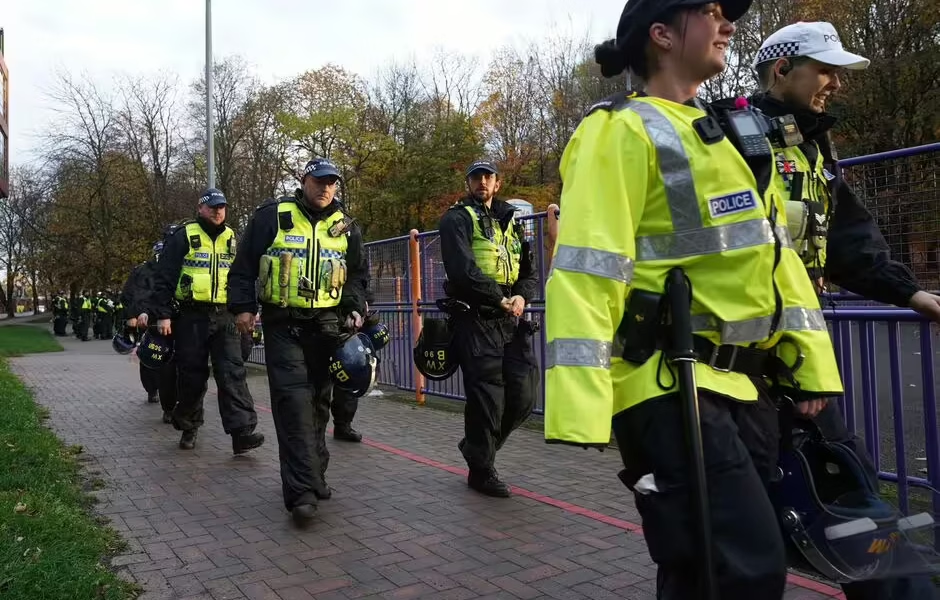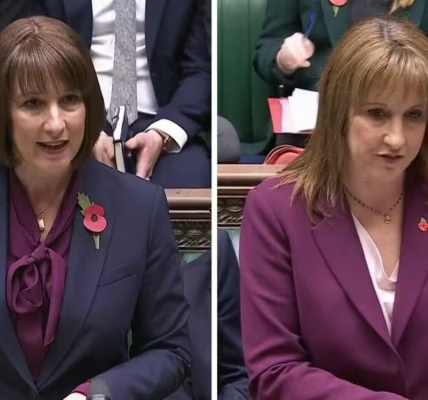
Police and Crime Commissioners decide police priorities (Image: Getty)
Elected police chiefs will be scrapped in the biggest reforms for more than a decade.
Police and Crime Commissioners will be replaced by mayors, their deputies or even county council leaders in 2028.
PCCs are elected officials responsible for overseeing local police forces and setting priorities for tackling crime.
And they currently have the power to appoint or dismiss Chief Constables.
But they are being abolished amid fears the role failed to increase public confidence in the police and became a financial burden to taxpayers.
The Home Office said the move will save taxpayers £100million, with some of the cash set to be used to revitalise neighbourhood policing.
Officials admitted “two in five people are unaware PCCs even exist.”
But the decision has already sparked fury.
Shadow Home Secretary Chris Philp compared the reforms to “rearranging the deckchairs on the Titanic”.
Mr Philp told the Commons: “The minister mentioned at the beginning the Government’s plans to bring forward a police reform white paper, announced, from memory, about a year ago.
“But there hasn’t been a single sniff of that white paper since then. Perhaps she can tell us when we can expect it and why the Government is so bereft of ideas, it has taken a year or more to publish that white paper.
“Now, today’s statement about police and crime commissioners represents, in my view, a tinkering around the edges from a Government which is failing on crime and policing.
“If you like, it is simply rearranging the deckchairs on the Titanic, because this Government is failing, police numbers are falling – they fell by 1,300 during Labour’s first year in office on a like-for-like March-to-March comparison – and not only are police numbers falling, they are continuing to fall and will drop even more this year.”
In her response, Ms Jones said: “Saving £100 million, I think, is quite substantial and not ‘tinkering around the edges’ as he suggests.
“But what I would say to him is, if he waits a few more weeks, he will see the reform agenda that the Home Secretary (Shabana Mahmood) is designing in its totality.
“And it will put policing on a much better footing than he left it.”
Association of Police and Crime Commissioners Chair, Emily Spurrell said: “On behalf of our communities we are deeply disappointed by this decision and the lack of engagement with us.
“For more than a decade, directly elected Police and Crime Commissioners have transformed policing accountability and delivered essential support services for victims of crime. Having a single, visible local leader – answerable to the public – has improved scrutiny and transparency, ensuring policing delivers on the issues that matter most to local communities.
“Abolishing PCCs now, without any consultation, as policing faces a crisis of public trust and confidence and as it is about to be handed a much stronger national centre, risks creating a dangerous accountability vacuum.
“Many of today’s flagship government missions – supporting victims, working with local partners to prevent crime, tackling violence against women and girls – originated with and are delivered by PCCs, reflecting the priorities of our communities.
“Whatever follows in our place must be rooted in local and national accountability, clear and identifiable leadership and connected to local communities. The public deserve nothing less.
“PCCs have worked hand-in-hand with the Home Office and operational policing to shape a police service fit for the future and confront policing’s biggest challenges. We remain committed to ensuring that public accountability remains at the heart of police reform.”
Home Office minister Sarah Jones said the role, introduced in November 2012, had not worked, with the public having little awareness of who their PCC is, and is showing little sign in improving confidence in police.
“The model was created to increase accountability and build a greater connection between policing and local communities, by having a single public official directly elected by the public responsible for holding their chief constable to account, setting the local police budget and agreeing strategic priorities for their force through their local police and crime plan.
“However, whilst the role of PCCs has evolved over time … the model has failed to live up to expectations. It has not delivered what it was set up to achieve.”
She added: “The reality is that the PCC model has weakened local police accountability and has had perverse impacts on the recruitment of chief constables.
“They have failed to inspire confidence in local people, in stark contrast to the mayoral model, which has clearly been ultimately more successful.”
Home Secretary, Shabana Mahmood, added: “The introduction of Police and Crime Commissioners by the last government was a failed experiment.
“I will introduce new reforms so police are accountable to their local mayoralties or local councils. The savings will fund more neighbourhood police on the beat across the country, fighting crime and protecting our communities.
“I would like to recognise the efforts of all current and former Police and Crime Commissioners, and thank them. These individuals served their communities and will continue to do so until they have completed their current terms.”
Sarah Lee, director of policy at the Countryside Alliance said: “This decision risks silencing rural Britain’s voice on policing. PCCs have for some time been the only direct line between countryside communities and policing decisions.
“Without them, rural crime, from hare poaching to fly-tipping to organised theft targeting farms could slide further down the priority list.
“We must avoid a situation where centralisation results in urban priorities dominating. Rural areas will end up paying the price.”




